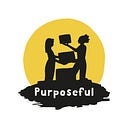The Youth Pre-conference at the 10th Africa Conference for Sexual and Reproductive Health opened with revolutionary feminst discussions and powerful reflections; from activist led documentation of women and girls in crises, a wellbeing approach to activism, strategies to prevent and respond to GBV and a panel discussion on feminist consciousness raising. Inspired by the words of Purity Kagwiria, Zeedah Meierhofer-Mangeli, Yah Vallah Parwon, and Ola Abagun, we reflect on some of the highlights and resonances from the panel on Feminist Conciousness Raising.
Yet so many of us know that even before we could name it as feminism we had an instinctive understanding that this is not how we were meant to live our lives; we were not meant to live in oppression, to be seen as persons less deserving of dignity, safety and freedom. Many of us have stories of when the first spark of resistance was ignited; burning questions that you could not let go of, a deep sense that something you’ve witnessed or experienced was not right… it was unjust, a moment where you felt so strongly about something that you were compelled to speak up.
Many more stories have been shared between us on how our great grandmothers resisted in their homes and in the fight for Africa’s political independence, and women’s roles in the new Africa — they too never using the word feminism, but standing for what they knew in their bones was just. African feminists have produced knowledge, catalysed meaningful change, and cultivated movements to sustain this change and continue the fight for our collective liberation. This knowledge is usually missing from the history books we read at school — it has been passed on orally, in whispers from generation to generation, slipping through colonial cracks. Dismissed, deemed invalid by those who have decided what is meaningful, what is most representative of the “truth”. “We are communal people”, Purity explains, this is true of Africans and this is especially true of African Feminists — we learn from each other, with one another, from one another’s struggles. For each panelist, the role of others in their journeys to becoming feminists was clear, pointing to the fact that raising feminist consciousness is a process which is relational. We walk this road together, welcoming others on our way, creating space to be heard — to be believed. This walk is intergenerational — it is powerful, to meet and read the words of those who look like us, love like us, struggle like us — of those who want to listen to us. On this road there are bumps, potholes as deep as the ones we have all navigated at some point on the African continent — deep, filled with sand, and covered only to be uncovered, worn down, exposed once more.
We cannot liberate ourselves if we do not understand what we are liberating ourselves from and if we do not know and collectively define the possibilities of what life could look and feel like beyond the existing systems and structures.
Because feminists seek radical change of the status quo, they are often met with backlash, particularly from those who benefit from things as they are. Holding this identity is not easy — we face losses, exhaustion, and have to constantly defend the spaces we create and occupy.
We take pause, we lean on one another, we come together, we laugh, we cry, we dance, we mourn and we are reminded once more that we are not alone — there are others like us, building power, resisting, sparking, and sustaining change.
